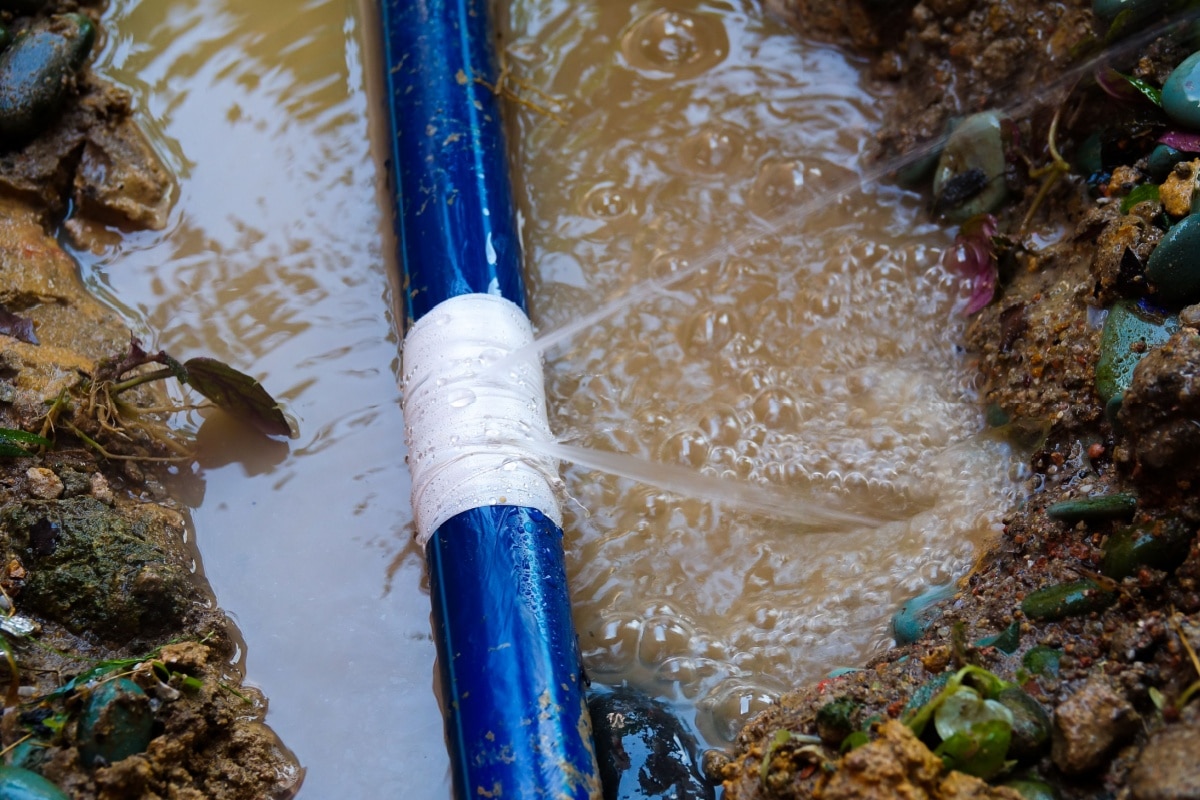
That sinking feeling in your stomach when you first notice water line problems is something no homeowner wants to experience. Whether it’s unusually low water pressure, discolored water, or suspiciously high water bills, these signs can trigger immediate concerns about needing a complete water line replacement. However, there’s some reassuring news: not every water line issue requires a full replacement. With the help of a professional plumber and consideration of several key factors, you can make an informed decision about which option best suits your situation.
Factors to Consider When Choosing Between Water Line Repair and Replacement
While some situations may indeed require a complete water line replacement, others might be resolved with targeted repairs. The key is working with experienced professionals who can accurately assess your situation and recommend the most cost-effective solution, whether that’s a new plumbing installation or a simple plumbing repair.
Age and Condition of the Existing Water Line
The age and condition of your water line play a critical role in determining whether to repair or replace it. Older homes often have water pipes made from materials like galvanized steel or even lead, which may no longer meet current safety standards. If your water pipes are outdated, showing signs of rust or corrosion, and experiencing frequent issues, a full replacement may be more cost-effective and safer in the long term. In contrast, newer pipes in good condition may only need minor repairs to resolve isolated issues.
Type of Pipe Material
The material of your piping can also impact whether a water line repair or replacement is the right choice. Common pipe materials include PVC, copper, galvanized steel, and PEX, and each has different longevity and repair costs associated with it. Copper and PEX pipes are durable and relatively simple to repair, whereas galvanized steel pipes, commonly used in older homes, tend to corrode over time.
If your home has galvanized pipes or other materials prone to corrosion, a complete replacement might be more economical in the long run. Replacing outdated pipes with modern materials can also improve water quality, as corrosion or buildup in older pipes can lead to water contaminants, strange odors, and even taste issues.
Extent of Damage to the Water Line
Not every damaged water line requires replacement. Minor leaks, isolated cracks, or other localized damage can often be repaired without needing to replace the entire line. However, if the damage is widespread or there are multiple leaks along the length of the pipe, a replacement may be the more practical solution.
When evaluating the extent of the damage, consider how often repairs have been necessary. If frequent repairs are becoming routine, a replacement could save you both time and money. A licensed plumber can assess the damage and provide a professional recommendation based on the overall condition and location of the damaged sections.
Repair Costs vs. Replacement Costs
Cost is a significant factor in deciding whether to replace or repair a water line. Repairs are often the less expensive option for minor issues, but the cost of the repair can add up if it becomes a recurring need. While a complete water line replacement may initially be more expensive, it could ultimately save you from higher, cumulative repair costs over time.
Material costs also play a role in the decision. Different pipe materials come with varying price points, so a replacement with high-quality materials could provide long-lasting benefits and prevent further repair costs. Always discuss both repair and replacement costs with your plumber, who can provide insight into the most cost-effective approach.
Possible Contamination and Water Quality Concerns
Rusty or brownish water could signal corroding pipes, while foul-smelling or bad-tasting water may suggest contamination. Contaminated water not only affects your home’s water quality but can also be harmful to your health. In cases where a broken pipe is causing water discoloration or contamination, replacement is often the best route to restore clean, safe drinking water.
Water Line Repair vs. Replacement: Find Out How to Choose
Answering the question, “Should I invest in a water line repair or replacement?” rarely has a one-size-fits-all solution. Each home’s plumbing is unique, and factors like pipe material, extent of damage, and age of the plumbing system all impact the right choice. Fortunately, you don’t have to make this decision on your own. An experienced plumber at TKO Plumbing Services can conduct a thorough assessment, discuss the pros and cons of water line repair vs. replacement, and provide an accurate estimate for both options.
Don’t wait for a small leak to turn into a costly problem — contact TKO Plumbing Services today for professional water line services in Marietta, Dallas, and the Metro Atlanta Area. Whether you need a quick repair or a full replacement, our team is ready to help you maintain a safe and reliable water supply.







